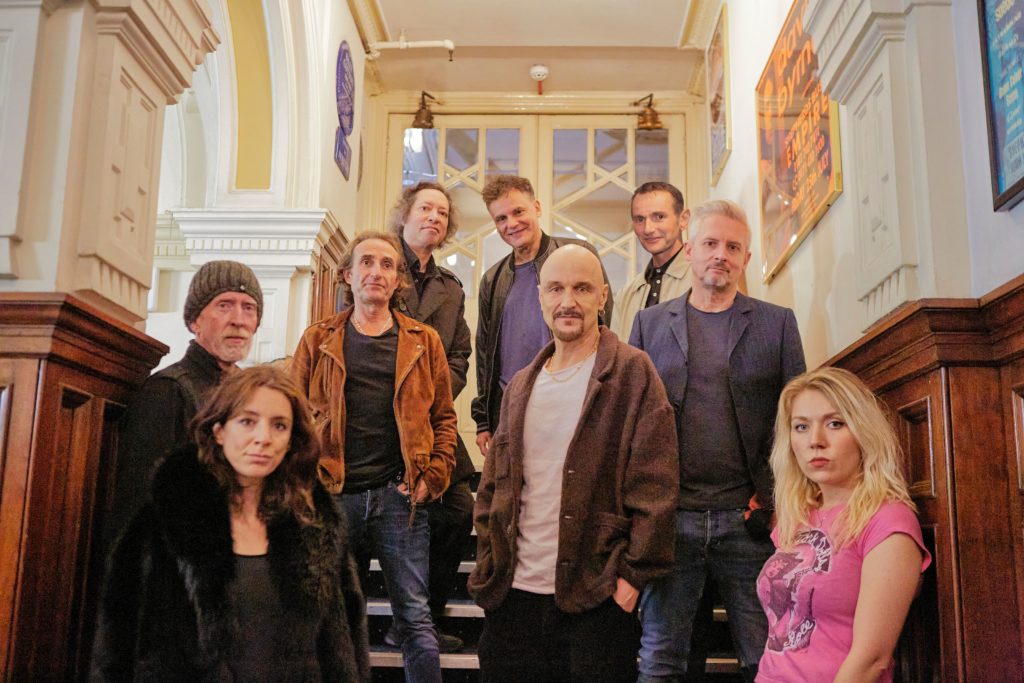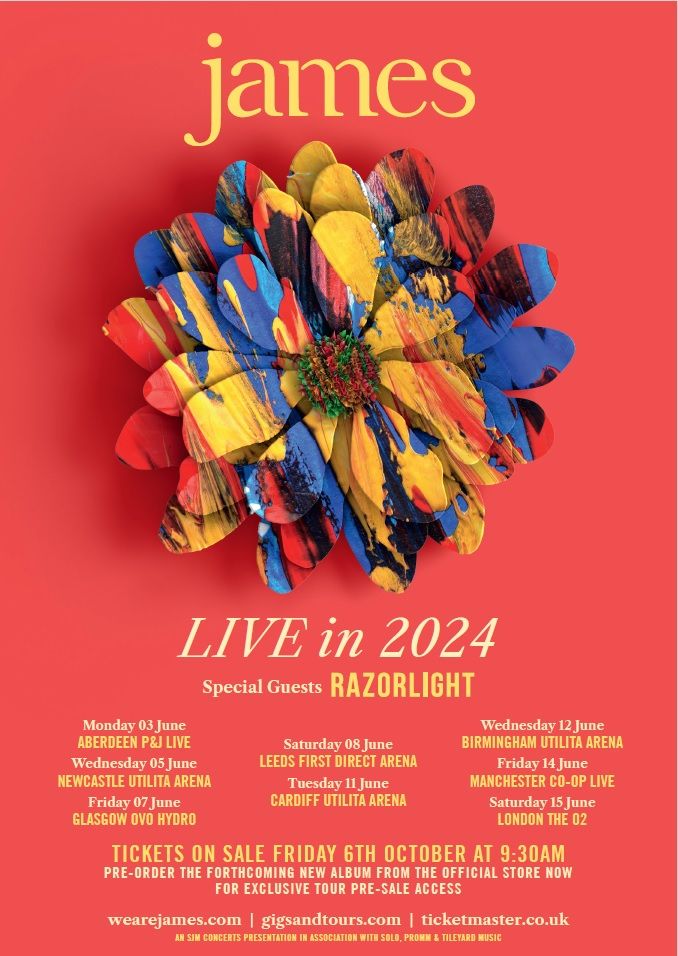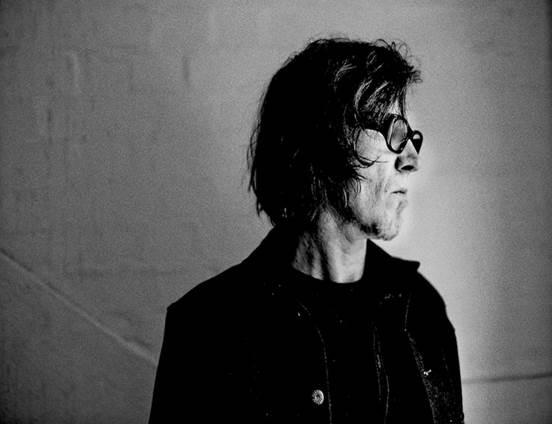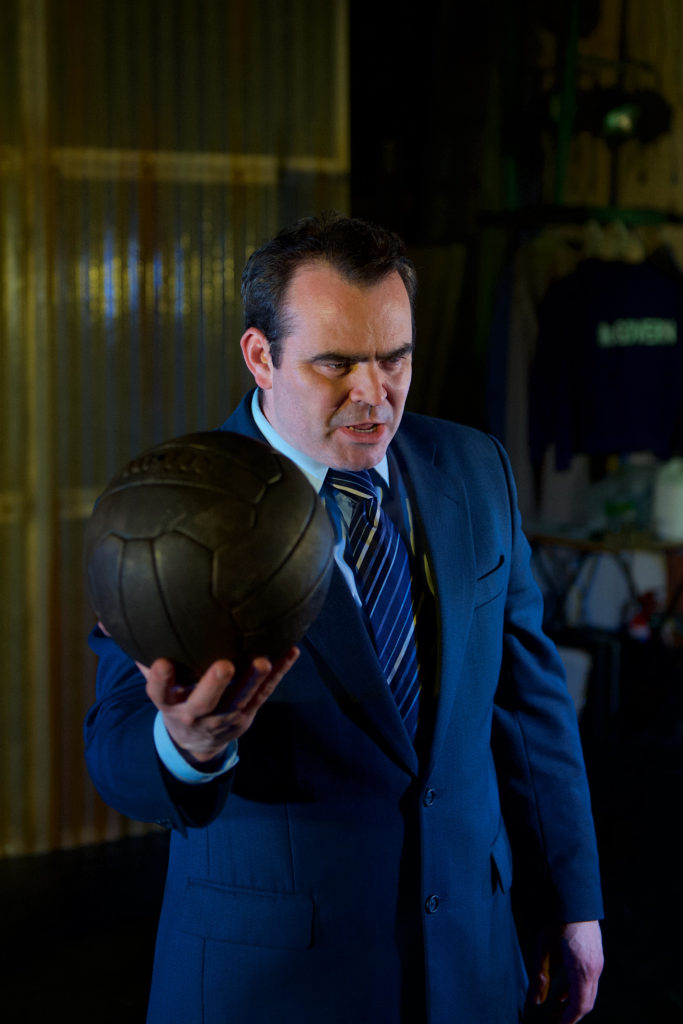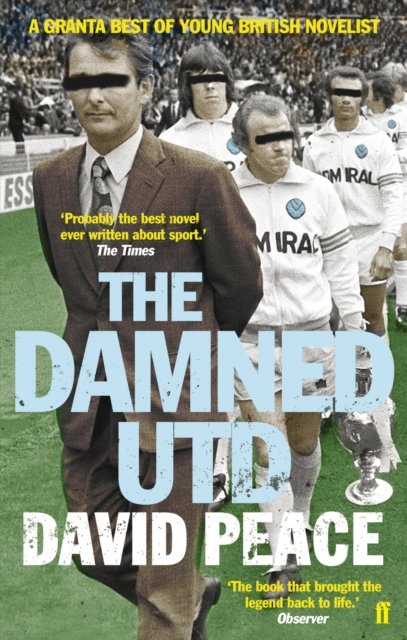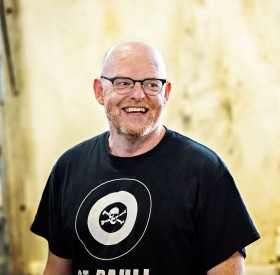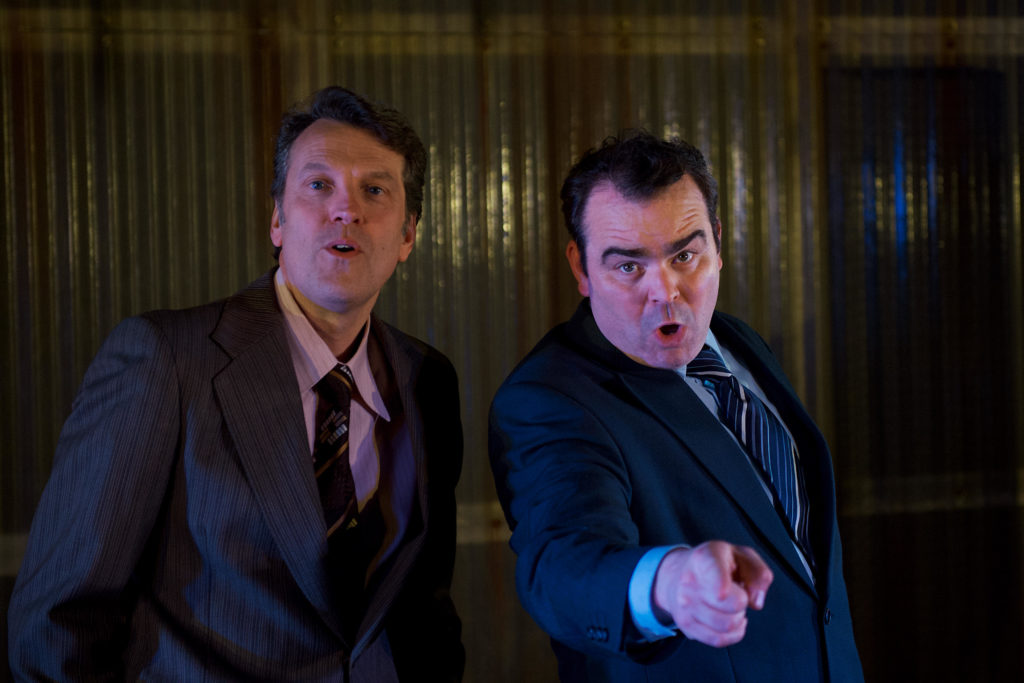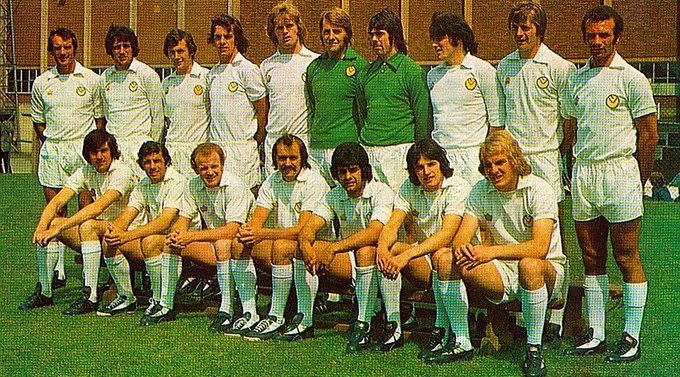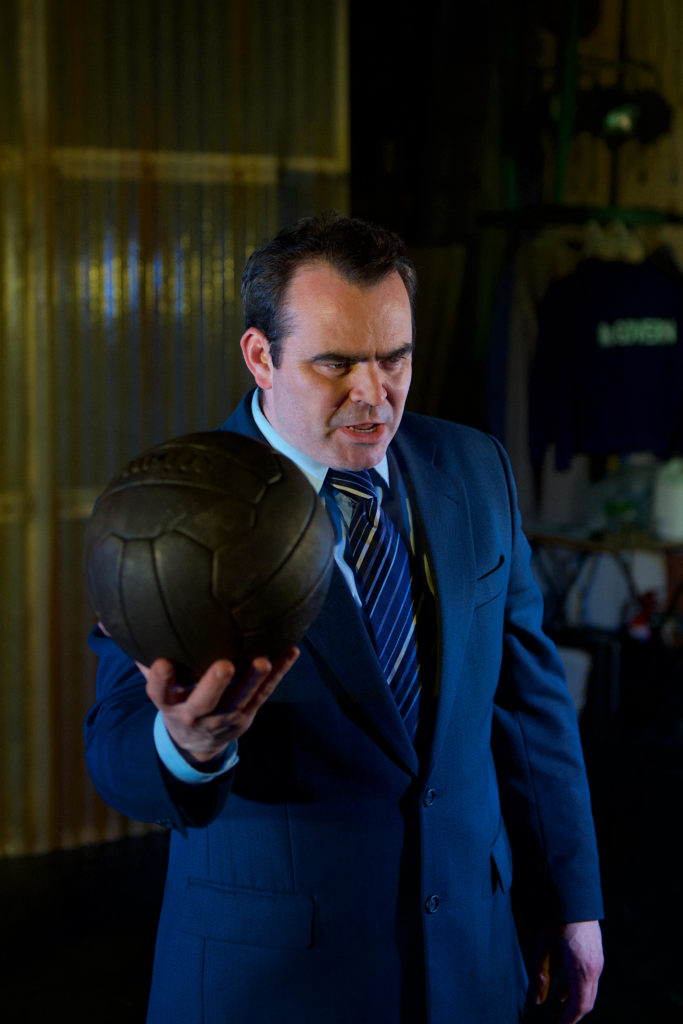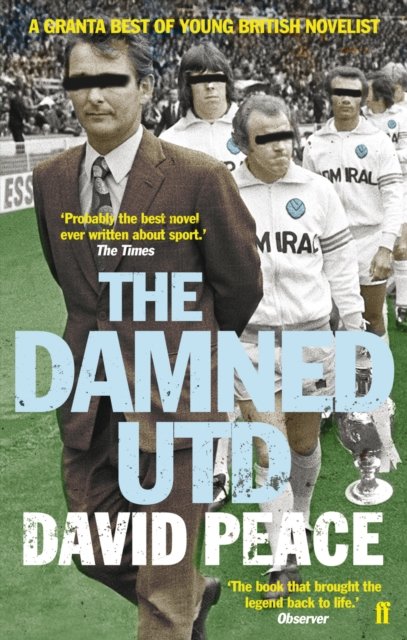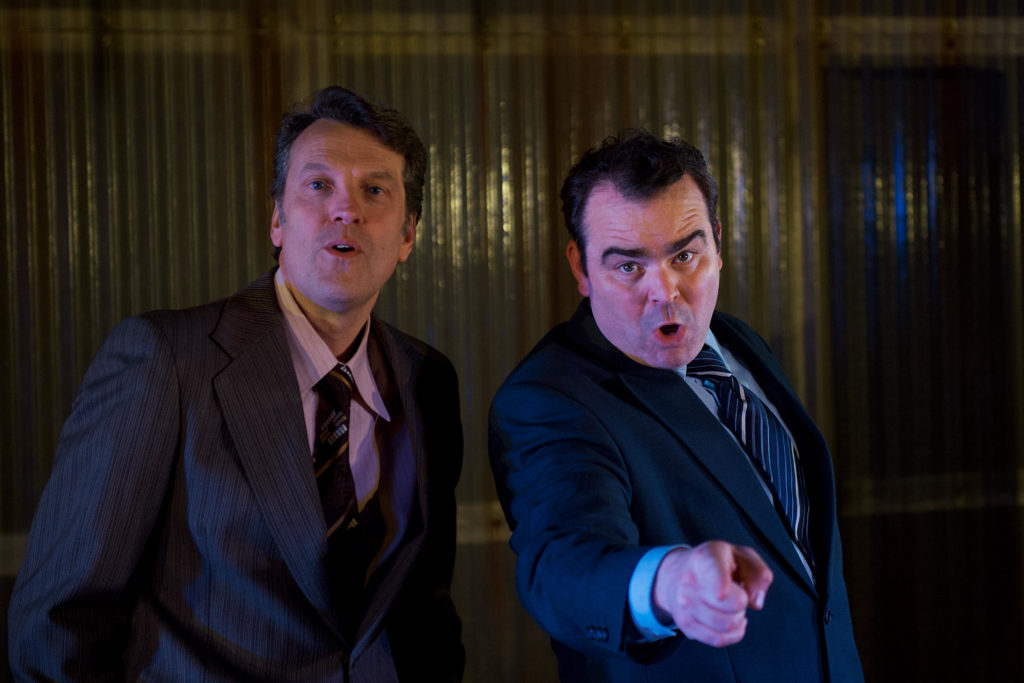
In the grip of dementia: Reece Dinsdale’s Howard and Shobna Gulati’s Sue in Through It All Together. Picture: Charlie Swinbourne
THROUGH It All Together is the third play about Leeds United after Anders Lustgarten’s ubiquitous, damnable The Damned United and Anthony Clavane and Nick Stimson’s lesser-spotted Promised Land, A Northern Love Story, staged in a community production with Red Ladder at Leeds Carriageworks Theatre in Summer 2012.
“About Leeds United” tells only half the story. The Damned United, adapted from David Peace’s literary psycho-drama, was rather more about Brian Clough, the Richard III of Leeds managers, and his 44-day impact on Revie’s champions versus their corrosive, longer-rooted impact on “Old Big ‘ead”.
A Promised Land, adapted from Clavane’s non-fiction book, interwove the repeat pattern of the rise and fall of Leeds United and the industries of Leeds with the story of the city’s Jewish community, who provided the club’s most successful chairmen, Manny Cussins and Leslie Silver.
Now Leeds United is only half the story once more in Chris O’Connor’s Through It All Together, a title taken from the club anthem Marching On Together (originally entitled Leeds! Leeds! Leeds! as the B-side to the official 1972 FA Cup Final song, Top Ten hit Leeds United, as the Courtyard theatre audience would all know!).

Everal A Walsh’s Leeds United director, left, and Dean Smith’s director of football Victor Orta in Through It All Together. Picture: Charlie Swinbourne
Forever Leeds fan O’Connor – known as “Leeds” at his London school – “could write one strand in his sleep”, and so the Leeds United story, a love letter to sainted Argentine maverick Marcelo Bielsa and his 2020 Championship champions, is indeed penned with all the self-deprecating humour, in-jokes, reverence and irreverence of a battle-hardened yet defiantly optimistic Peacocks supporter.
The other strand, drawn from the impact of dementia on the grandmother who helped to raise him, again is written from the inside track. “One aspect we really wanted to get right was making sure the show is dementia friendly and accurate to what people go through,” he told Graham Smyth [the Yorkshire Evening Post’s Leeds United reporter since 2019] in his interview for the Playhouse premiere’s excellent programme.
Your reviewer writes with investment too: both as a long-suffering Leeds United addict since 1969 and having experienced his father’s seven-year decline with dementia – it is never a battle – that ended in relief and release in January 2016.
O’Connor said he could be “incredibly confident and happy” with the Leeds United angle. He has taken every care – like the remarkable staff at dementia care homes – to bring similar authenticity to the dementia thread, backed by the work of Playhouse theatre and dementia research consultant Dr Nicky Taylor and the Courtyard corridor exhibition that rewards early arrival for perusal.
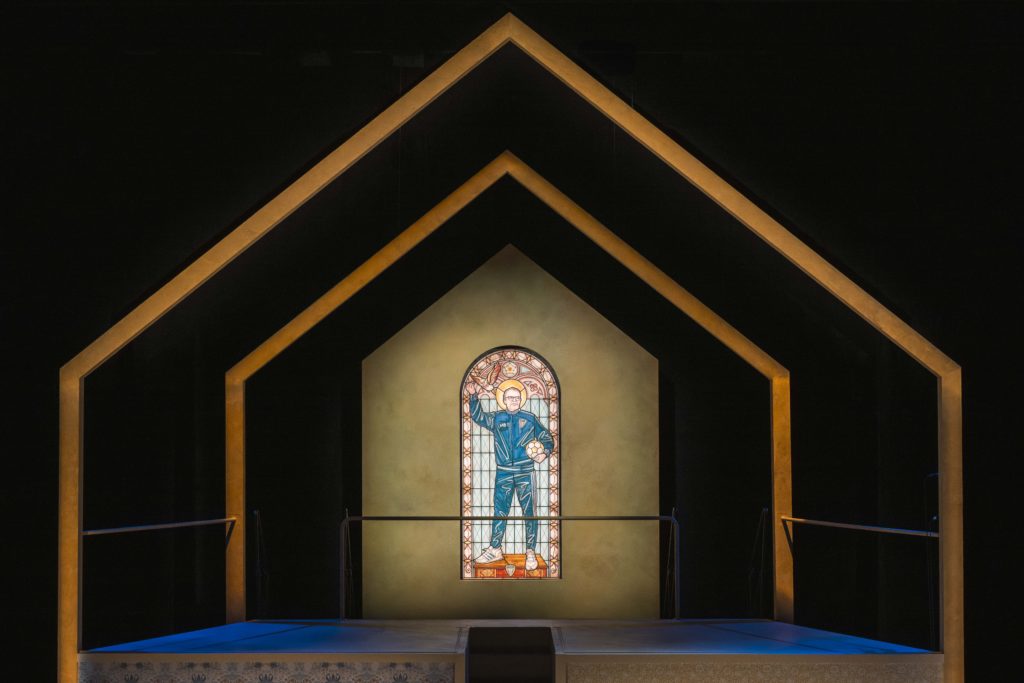
The veneration of Marcelo Bielsa in Amanda Stoodley’s church set design for Through It All Together at Leeds Playhouse. Picture: Charlie Swinbourne
Director Gitika Buttoo says O’Connor’s play is “for the people of Leeds, showing how football ripples through all the corners of life…but that story, while rooted in Leeds, is universal”. She’s right. You could transplant the structure to any football club’s origin story, such is the ubiquity of a supporter’s jam-side-down relationship with fate, while dementia is becoming pervasive.
In this story, Reece Dinsdale’s life-long Leeds United fan Howard Wright is in the early throes of dementia, his life-changing diagnosis coinciding with director of football Victor Orta’s left-field pursuit and recruit of Marcelo Bielsa to end LUFC’s wilderness years amid the Championship tundra.
The volcanic Orta is represented physically by one of two Paul Madeleys in Buttoo’s cast, the multi-role-playing Dean Smith (regular “Championship will Championship” contributor to The Square Ball podcast, by the way).
He teams up with Everal A Walsh in three partnerships, representing the club management (Orta and a calmer presence alongside); the fans, a diehard Elland Road attendee and a disaffected deserter newly magnetised by Bielsa’s beautiful game; and the media, podcasting and match dissecting much in the healthily cynical/sceptical/supportive style of The Square Ball, quirky adverts et al.

So many ups and downs: The life and pub philosopher times of Leeds United fans, played by Everal A Walsh, left, and Dean Smith
Unlike the omnipresent Clough in The Damned United, Bielsa is not portrayed physically (save for a delightful fantasy sequence where he dances the Argentine Tango with Shobna Gulati’s Sue in Newell’s Old Boys kit in his 1970s’ defender days). Nor is he symbolised by Bielsa’s Bucket (on which he would surely perch if the club were ever to bestow him a statue).
Instead, as mystical as Clint Eastwood’s Man With No Name turning up out of nowhere, and more in keeping with Irek “Tankpetrol” Jasutowicz’s Bielsa mural at Hyde Park Corner, St Marcelo appears in a stained glass window, beatific, aura aglow, high above his Peacock flock, within set designer Amanda Stoodley’s open-plan framework of a church. How fitting!
Church structure meets the kitchen-sink drama of the Wright household’s kitchen and sitting room, home to Dinsdale’s Howard and fellow Leeds devotee Sue (Gulati), joined regularly by daughter and putative chef Hazel (Natalie Davies).
They will, in the words of the club anthem, go through it all together, both Howard’s descent into dementia and Leeds United’s typically flattering-to-deceive yet, hardly a spoiler alert, ultimately sublime rise to the Premiership’s golden gates that coincided with Covid’s lockdowns.

Shall we dance? Dean Smith’s Marcelo Bielsa, in his Newell’s Old Boys playing days in Argentina, struts the Tango with Shoba Gulati’s Sue in a fantasy scene in Through It All Together. Picture: Charlie Swinbourne
Two forms of distancing then play out: the fans consigned to listening to Adam Pope on BBC Radio Leeds, and Howard’s losing his sentient powers to dementia’s corrosion and erosion.
O’Connor writes brilliantly and so movingly of this struggle: the “forgetfulness”, the sudden moments of lucid clarity (such as naming Don Revie’s champion team); Howard’s wish to not be a burden to his family by listing preparations to move to a care home while he still has the mental minerals to make that decision.
More and more sticker messages are placed around the house to help Howard navigate his way through each day’s routines; daughter Hazel starts to question whether the measures they take are worth it; Sue is consigned to hospital with Covid, at which point Dinsdale’s performance hits new heights.
All the while, Howard and Sue will sing Marching On Together as the couple’s love song, “We love you, Leeds! Leeds! Leeds!” replaced by “I love you Sue, Sue, Sue”.
We know how it ended for LUFC, with promotion, only to be followed inevitably by Leeds falling apart again (as Walsh’s fan laments to the biggest knowing laughs).

Making plans: Reece Dinsdale’s Howard in discussion with Natalie Davies’s Hazel in Through It All Together
We know how it will end for Howard, so we don’t need to see it. They will go through it all together, like Leeds United’s motto, side before self.
Dinsdale, a Playhouse luminary since 1990’s debut production of Wild Oats after the Quarry Hill relocation, is terrific in his King Lear for the football masses, all the more so for putting his Huddersfield Town allegiances to one side to embrace Leeds United.
The ever supportive Gulati, always a hit with Leeds audiences, the doughty Davies and the Smith-Walsh double act at the treble are tremendous too under Buttoo’s direction that makes the play work for fan and theatre lover alike.
You will laugh, you will cry, you will cheer and groan, you will sing the songs, just like at Elland Road; you will miss Marcelo and you will know someone like Howard. At some we shall all have to go through it together, as we have our ups and downs.
Chris O’Connor has told a story of the everyman (Howard) and the extraordinary (Bielsa) with dignity, distinction and devotion.
Through It All Together, Leeds Playhouse, at least until the world stops going round, or more precisely July 19. Box office: 0113 213 7700 or leedsplayhouse.org.uk.
Review by Charles Hutchinson

